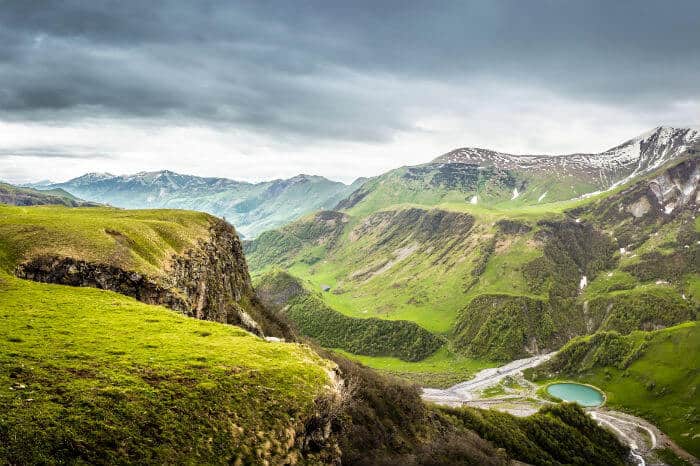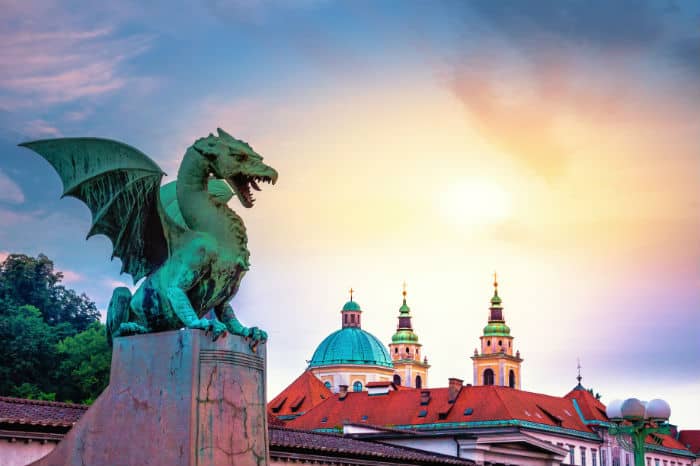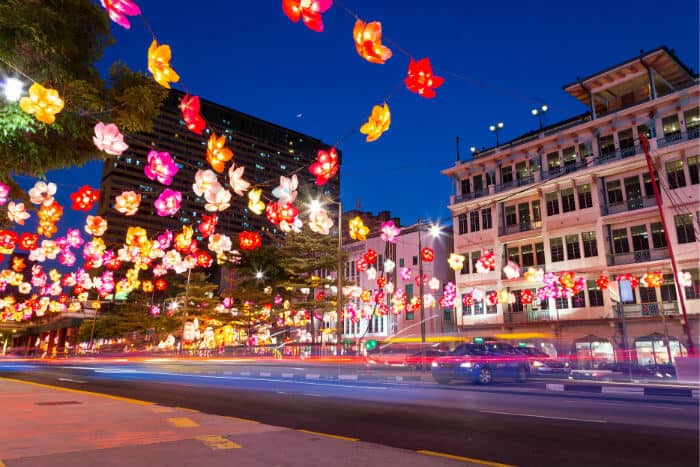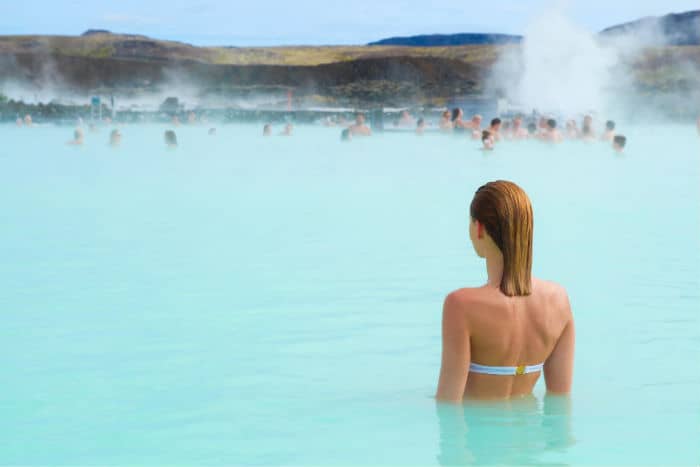The 7 Safest Countries in the World for Nomads
September 1, 2023
This article discusses the seven safest countries in the world for nomads, where they can roam or work freely without a worry in the world.
Thinking of the safest places in the world, people often consider Europe. Although many European countries are pretty safe, they’re not the only ones.
Countries worldwide, like Singapore and Qatar, are notching up their safety standards and becoming safe havens for locals and expats alike.
So, don’t follow the herd and ignore an entire region based on what you see on primetime news. The reality is often far different.If you want to start a company, invest, or live somewhere safe overseas, get in touch with us today. We’ll help you go where you’re treated best and feel safe at all times.

7. Georgia
If this nation on the cusp between Europe and Asia is missing from your bucket list, revise it. Beckoning visitors with a Black Sea coastline to the west and Caucasus mountains to the north, this once Soviet Socialist Republic has come a long way since its independence.
Following a stifling seventy years of Soviet rule, this small country of 3.7 million has staged one of the world’s most impressive economic turnarounds.
Georgia’s economy grew by an average of 6% annually from 2003 to 2015, while poverty declined rapidly. Today, it boasts one of the lowest crime rates reported in Europe, a thriving restaurant scene in the charming capital city of Tbilisi, and a scenic wine trail in the Kakheti region that’s considered one of the oldest wine regions in the world.
Georgia is also an excellent region for Nomad Capitalists, thanks to its thriving real estate market, tax-friendly regime, lucrative investment opportunities, and easy banking and company formation process.
If you’re looking for a safe place to live or set up a European corporate base, you should seriously consider Georgia.
6. Oman
Not an obvious destination, especially not for American visitors, this wealthy nation that generates most of its revenue from oil resources (and is looking to diversify) is an outpost of calm.
The country is very confident about its potential, aiming to become a sought-after tourist and expat destination in the near future. After spending a little time here, you start to believe it, too. Economic growth in Oman has been incredibly impressive over the last fifty years. In the 1970s, it grew by more than 1,000%. The Omani economy is thirteen times as large now as it was in 1980. Oman has a GDP per capita that is basically half of the United States.
With a 15% corporate tax, zero personal income tax, and an openness to foreign workers, Oman is an attractive place for entrepreneurs. Oman abides by strict religious, moral, and legal codes, rendering crime rates very low. Situated on the edge of the Arabian Peninsula, it is one of the countries in the region with the most dazzling and diverse landscape. Imagine a dramatic coastline that rivals the beaches of Hawaii or Brazil or the silky sand dunes from here to the horizon in the Empty Quarter desert.
The verdant south is speckled with fruit plantations and Bedouin towns steeping in tradition. The capital city of Muscat is vastly different from nearby Dubai or Abu Dhabi. With very few high-rises and plenty of old-school white-washed architecture, its laid-back charm is optimistic and infectious at once.

5. Slovenia
This Eastern European country roughly the size of New Jersey is hidden in plain sight. Situated between buzzier, more fashionable neighbors, Italy, Austria, and Croatia, Slovenia is often overlooked when planning a European itinerary.
Today, Slovenia is not only part of the Eurozone and the European Union, but feels just as advanced as its neighbors to the west. Banks, while not perfect safe havens, are efficient and direct. Real estate isn’t as cheap as in Budapest, but it is affordable and of good quality. With an opening to the Mediterranean, a stretch of the Alps, delicious wines, and food, it won’t be staying under the radar for too long. Its capital Ljubljana was also awarded the highly coveted “Green Capital of Europe” title by the European Commission.
You can easily see why when exploring the city’s plentiful green spaces, a car-free historic center, and the many cafes on the banks of the Ljubljanica River. In addition to the eco-culture, Slovenia boasts one of the lowest crime rates in the world, with over 90% of registered criminal offenses constituting theft. Slovenia is among the richest of the Slavic countries, and the Overseas Security Advisory Council has given it the lowest danger rating. With its beaches, ski resorts, golf courses, and bucolic countryside, Slovenia certainly deserves your attention.
4. Hong Kong
With safe streets, efficient public transport, a first-rate education system, and a plentitude of restaurants, Hong Kong has firmed its reputation as a cosmopolitan hotspot. Averaging 26 million tourists a year, this “Asian World City” is flourishing by all measures and seems to be Asia’s answer to Western mega-cities like New York. In 1997, Hong Kong’s sovereignty was handed over from the British to China, kicking off a 50-year period of autonomy and rendering Hong Kong a “Special Administrative Region” of China with its own constitution, currency, passports, and official languages.
Hong Kong consistently ranks among the lowest in the world for terrorist incidents and natural disasters (which places it above Japan on the safety scale in our books). If anything were to happen, Hong Kong boasts extremely reliable police and emergency services. A competitive economy consistently draws expats and businesses to its shores. Hong Kong has been growing very fast in the past decades, which is very visibly represented by its impressive skyline.
While many European countries suffered from economic downfall, Hong Kong is still growing, although not in an explosive way. It’s the kind of growth that belongs to a stable and predictable country.

3. Singapore
Thanks to its strict laws and high penalties for minor offenses, this island nation takes the crown for more than just offshore gold storage; it also has some of the lowest crime rates in the world. A few years ago, the country police reported a 135-day stretch without any crimes whatsoever. These stats are so uplifting, that many of Singapore’s stores and restaurants don’t even bother locking their doors after hours.
Singapore is consistently ranked by the World Bank as the best country to do business in, thanks to standards for trading across borders, dealing with construction permits, and protecting investors. It’s ranked the freest economy globally according to the often-quoted Heritage Foundation’s Index of Economic Freedom. Asia is the epicenter of 21st-century growth, and Singapore is at the heart of it.
It’s the place for the wealthy to store their wealth. It’s also one of the least corrupt countries in the world. Singapore is a top destination for affluent expats. Nearly one in five Singapore residents is a millionaire.
Some may find the strict laws and surveillance (there are networks of cameras covering all public housing blocks and car parks) a downside to living or visiting this prosperous nation. But that is a personal choice.
2. New Zealand
Remote and beautiful are the words that come to mind when thinking about this South Pacific two-island nation marked by volcanoes, glaciers, lakes, and national parks. Roughly the size of the United Kingdom but with a population of 5 million compared to the UK’s 67 million, this “Middle Earth Mecca” is guaranteed to leave you gasping at the views, not sights of conflict or violence.
New Zealand is one of the prime places in which people are choosing to create a bolthole — a place where they can escape while the rest of the world is rioting, and creating chaos. It’s a kind of safe haven far away from everything else. It has an excellent passport, is in a cool location in the Southern Hemisphere, is detached and independent, is a great place to store gold, is not part of any big alliances like the EU, and is a safe haven.Ranked as one of the world’s most peaceful and least corrupt countries in the world, New Zealand’s status is protected by laws that prevent abuse of freedom of expression and a reliable police force that won’t act arbitrarily. There isn’t even dangerous wildlife here, so you can camp and hike to your heart’s content.

1. Iceland
Renowned for its egalitarian society, laid-back culture, and virtually no corruption, Iceland has consistently topped the world’s safest countries list since 2008. Icelanders were the first in the world to elect a female president in 1980 and an openly gay prime minister in 2009. The police officers here don’t carry guns, and although gun ownership is legal, obtaining a firearm is a difficult process that involves lots of paperwork and restrictions.
Scoring low on homicides, number of people in jail, and terror acts, Iceland is also the only NATO member without a standing army, navy, or air force. It consistently performs well in general well-being relative to most other countries in the Better Life Index. Living standards in Iceland are very high, even when compared to other European nations. The country ranks at the top in jobs and earnings, and above the average in income and wealth, well-being, health status, environmental quality, personal security, civic engagement, and education and skills. Most of the population is employed, with 86% of people aged 15-64 in Iceland having a paid job.
Life expectancy is high at 83 years on average. The country has a strong sense of community and high levels of civic participation, with 98% of people believing they know someone they can rely on in time of need. Icelanders are generally more satisfied with their lives than the average. As if you needed more convincing to visit this tranquil paradise of geysers, thermal baths, and Northern Lights.
Safest Country in the World
When you look at world peace indices, you’ll often find that the most popular Western countries never make it into the top ten or even top twenty. For example, the United States never makes the top 10 safest countries list. The homicide rates, intensity of organized internal conflict, and political divisions of recent years are all contributing factors.
That is all the reason to look beyond your comfort zone when choosing your next travel destination or a place to call home.
Forget what you’ve heard and see the ground realities and undeniable stats to make an informed decision. If that’s too much work for you, contact us. We will devise a holistic offshore strategy that best suits your needs.


Is Grenada Safe for Visitors, Residents and Families?
Evaluating a nation for tourism, relocation or investment begins with a single, non-negotiable factor – safety. Security, from both a personal and financial point of view, is the foundation upon which all other considerations rest. And while it’s easy to assume that stability is a given in the developed world, recent challenges in countries like […]
Read more

Is Antigua Safe for Tourists, Families and New Residents?
Security is a cornerstone of any serious investment migration strategy. For high-net-worth individuals (HWNIs) and globally mobile families, it ranks alongside tax efficiency, political stability, and quality of life as a key driver in deciding where to live, invest or acquire a second passport. Too often, safety is assumed to align with economic development. Countries […]
Read more

Is St Kitts and Nevis Safe? Tips for Tourists and Residents
Safety is a non-negotiable factor for anyone considering whether a country is right for travel, relocation or investment. Overlooking such a vital consideration carries serious consequences, and the stark truth is that assumptions based on a country’s global image often fall short of reality. Cases in point include the following countries: The takeaway is clear: […]
Read more




